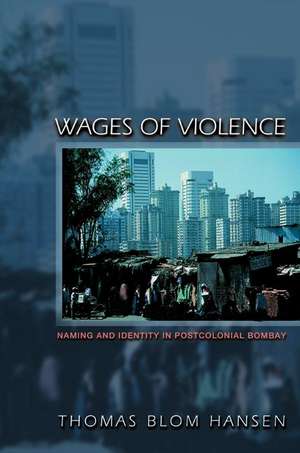Wages of Violence – Naming and Identity in Postcolonial Bombay
Autor Thomas Blom Hansenen Limba Engleză Paperback – 25 noi 2001
Preț: 386.90 lei
Nou
Puncte Express: 580
Preț estimativ în valută:
74.03€ • 77.50$ • 61.26£
74.03€ • 77.50$ • 61.26£
Carte tipărită la comandă
Livrare economică 07-21 aprilie
Preluare comenzi: 021 569.72.76
Specificații
ISBN-13: 9780691088402
ISBN-10: 0691088403
Pagini: 280
Dimensiuni: 181 x 226 x 18 mm
Greutate: 0.4 kg
Editura: Princeton University Press
Locul publicării:Princeton, United States
ISBN-10: 0691088403
Pagini: 280
Dimensiuni: 181 x 226 x 18 mm
Greutate: 0.4 kg
Editura: Princeton University Press
Locul publicării:Princeton, United States
Descriere
When Bombay changed its name to Mumbai in 1995, it was the culmination of a long process that transformed India's primary symbol of modernity and cultural diversity into a site of ethnic conflict and violent nationalism. This is an account of how the city's atmosphere, dominant public languages, and power structures have changed since 1960s.
